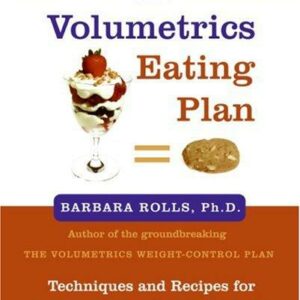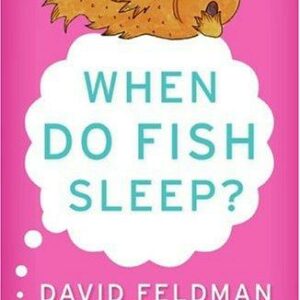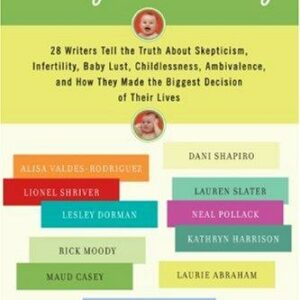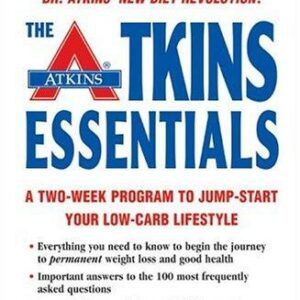Drug Muggers
$21.99
| Title | Range | Discount |
|---|---|---|
| Trade Discount | 5 + | 25% |
- Description
- Additional information
Description
Unpleasant, uncomfortable, and unexplained side effects? Drug Muggers is your side effect solution.
Prescription and over-the-counter drugs help millions of people with devastat-ing diseases and chronic conditions. But in the process, these medications can also deplete the body’s natural stores of vitamins, minerals, and hormones—the very nutrients you need to keep energy levels high, fend off infections, and be healthy. Pharmacist Suzy Cohen calls these medications “drug muggers,” and she says it’s essential to replenish what a drug mugger steals from your body in order to feel your best and avoid side effects. Not understanding the drug-mugging effect may lead to new “diseases” and possibly catastrophic health con-sequences.
You’ll discover:
• How to relieve uncomfortable or potentially serious side effects
• How to remain compliant with your medication and still feel well
• Which foods and drinks to avoid if you take certain medications
• How to install a nutrient security system with vitamins, minerals, and food choices
Plus!
• Improve your energy levels
• Learn which minerals you need if you take heartburn medicine
• Improve digestion and relieve constipation with a simple nutrient
• Discover the antioxidant you must have to save your heart
• Get your hair and nails to grow faster by replenishing nutrients
• Find out which vitamins and minerals are the purest and highest quality
• Learn which vitamins outperform medications in some cases
Drug Muggers is an eye-opener! It reveals why you may be feeling so poorly and how to improve your well-being with affordable nutrients that are sold over the counter. You can (and will) improve the way you feel—whether or not you take medicine!Suzy Cohen, RPh, has been a licensed pharmacist for more than 20 years and writes the syndicated health column “Dear Pharmacist.” She has made guest appearances as “America’s Most Trusted Pharmacist” on many network shows, including The View and The Dr. Oz Show, and hosts a medical minute on the syndicated TV health show Know the Cause. Suzy is a member of the Institute of Functional Medicine, American College for Advancement in Medicine, and the American Association of Anti-Aging Medicine.Chapter 1
What Is a Drug Mugger? And Why Should You Care?
As a licensed pharmacist for 22 years, I have a confession to make: Some medications scare me! Don’t get me wrong. As someone who has been dispensing prescription and over-the-counter (OTC) drugs for many years, I have a deep respect for what they can do. Pharmaceuticals can ease your pain, help you breathe better, keep you from having a seizure, and alleviate allergy symptoms that make your life miserable. The list of life- enhancing benefits goes on and on and on.
But–and, oh boy, is this a big but–while fixing the one problem that you take the pharmaceutical to fix, that drug is likely robbing you of life- sustaining nutrients in the process. Many, in fact most, of the medicines you’re taking have the potential to steal the life out of you slowly. How does that grab you? The ultimate effects of this nutrient depletion explain everything from nagging aches to life-threatening diseases.
Millions of people are slipping through these drug-caused nutrient deficiency cracks as they get sicker and sicker each year. The system is so out of whack that people think it’s normal to see eight or nine different physicians for an ailment that eludes diagnosis. And there’s a good chance that the ailment can be traced back to a single nutritional deficiency!
While drugs often do provide blessed symptom relief, in most cases they don’t actually cure the disease. By virtue of the fact that they steal nutrients from your system or prevent their absorption, they could even be causing more diseases. As you will soon see, if you run low on even one vital nutrient, you can experience a veritable cascade of uncomfortable side effects. Then these will likely be diagnosed as a new disease, for which you will be handed yet another pricey prescription.
Sad to say, you’ll get on a medication merry-go-round, and it’s a hard ride to get off of. That’s why I wrote this book. I want to empower you to learn what is causing your problems and to help you feel better. Also, knowing what nutrients to replenish will help you to stay compliant with your medications, and this will please your physician, too.
Let’s talk about nutrients and their dosages, because you will soon find out while supplement shopping that dosages vary widely from brand to brand. You may be afraid to take more than the US Recommended Daily Allowance, which I sometimes suggest you do, so allow me to give you a primer on the RDA and dosages in general.
The RDI Is Not the Be-All and End-All
In my professional opinion, the reference daily intake (RDI) is just a starting place. It’s not the be-all and end-all of good nutrition. The suggested amounts for each nutrient are definitely not enough to provide optimal health or offset the drug mugging effects of your medicines and lifestyle. To tell you the truth, I don’t pay much attention to the RDIs on labels because I don’t eat a lot of foods that come with labels. That’s because I lean toward vegetarianism. (If you do, too, then please eat intelligently, because many vegetarians do not know how to eat properly. They quickly run out of important vitamins, amino acids, and minerals, among them vitamin B12, L-carnitine, and iron.)
Fruits and veggies don’t come with a food label stating the RDI. I assure you that these foods are highly nutritious even if they don’t have a label to prove it. Not only are plant foods good for you, but they also do away with the compulsive need to read the RDI and make sure you’re getting it.
I am bent on keeping a nutritious kitchen, so you won’t find many canned foods in my pantry. I keep a can of ravioli for my dad because he loves it and has stayed alive for 80-something years despite eating it. It would take you an hour to find this can. I realize that I’ll be in serious trouble if another hurricane barrels through Florida, where I live, but canned, boxed, or highly processed foods are simply not part of my family’s diet. This does not mean that you won’t find chocolate-covered macadamias if you search hard enough. Okay, fine, there are some in the top drawer of my desk in case of an unlikely emergency, like if my computer freezes or umm, I umm . . . develop writer’s block . . . or misspell a werd :-).
I do not normally buy, eat, or store foods that have lengthy nutrition labels on them. We as humans are at the top of the food chain, so we have the most highly developed brains and impressive cognitive function. This enables us to make a choice to eat consciously, or not. If we all ate organic fruits and vegetables, we could get by with fewer drugs. There would be no stress about whether or not we met the RDI for a nutrient. We would be getting enough of each nutrient naturally.
This whole rant isn’t to nag you. I do it because I care. I’ve read thousands of readers’ e-mails and letters over the years. I know that many people are concerned about improving their diets, losing weight, and avoiding a heart attack or diabetes. Many of my readers must take medications that are drug muggers, sometimes multiple drug muggers. Perhaps you are among this number. I can imagine how you feel, taking so much medicine and feeling worse and not knowing what else to do or who else to ask.
This is like being stuck in the middle of a giant whirlpool and not being able to get out. As a pharmacist, I want to get as many people as possible on the right track of taking fewer prescribed drugs. My point is that if you’re eating really well–and I know you can–then it won’t matter much what the fine print on your food labels says. The same goes with your vitamin or dietary supplement. It may have the RDI listed on it, but if you are being mugged by a drug, you are going to need much more than the RDI suggests. Let me tell you a good story.
A woman came to the pharmacy 1 month after I had suggested that she take additional vitamin B6 to help her with her carpal tunnel syndrome. She had been taking birth control pills, which I knew to be a drug mugger of vitamin B6. She told me she wasn’t doing any better on the B6 she had picked up and showed me the bottle. It was a popular multivitamin that contained 2 mg of B6. I told her it was abysmally low for her needs, but she insisted that it met 100 percent of the DV and pointed out the ingredient label to prove it. We went round and round for a few minutes until I walked her over to the vitamin aisle and showed her a bottle of B6 that contained 50 milligrams and suggested she try that for another month. She happily returned a month later to tell me she was totally relieved of her pain.
I’m one of the health-care professionals who happens to think that the RDI is just a minimum requirement that should keep you from developing a deficiency of a nutrient and perhaps dying of that deficiency. For example, the RDI for vitamin C will keep you from developing and dying of scurvy. The recommended amount of vitamin B1 will prevent you from dying of beriberi. The suggested amount of vitamin D will keep you from developing rickets, and the list goes on. This leaves me deflated and thinking, “That’s it?” I’m meeting 100 percent of the DV and all this means is that I won’t die from a deficiency? Sheesh! There is a huge gap between suffering from a deficiency and being healthy, isn’t there? I choose health. That’s why I want more than what the DV recommends. For more on Daily Values, see Chapter 26.
Science Looks at Pharmaceuticals
The idea of helping people replenish lost nutrients didn’t just suddenly dawn on me; Drug Muggers was years in the making. Many other scientists studied this topic before I did. As a pharmacist, I have made it my business to pay attention to every medication on the market and all the interactions that may occur with them. I also watch for news about medications and food or herb interactions. Because I specialize in medication and herbal interactions, I keep files on certain drugs and on all those black box warnings that the FDA comes out with every now and then. A black box warning is basically a warning to physicians stating the possibility of a particularly dangerous side effect. Keeping files and computer documents about such things is part of my professional life. I haven’t included every single clinical research study or trial in this book because it would make it very long indeed. When it is most interesting, however, I have included certain citations in each chapter, but most of my references are in the back of this book so you can see them for yourself at your leisure. The fact is that drugs cause side effects, and many do so by stealing vital nutrients from our bodies. I’m proud to share all this information with you in the coming pages.
My information doesn’t come only from studies, however. It also comes from my heart. I want you to know that I used to work in nursing homes, where I saw firsthand the horror of living under the shadow of disease and the negative side effects of multiple medications. I so wanted to have a positive impact on people’s lives, and I was saddened that many of the medications that came from my pharmacy did more harm than good. Before I teach you how to restore balance to your own life, I need you to master the basic definition of a drug mugger.
Drug mugger: noun An over-the-counter or prescribed medication, food, herb, medical condition, or lifestyle choice that is capable of robbing your body’s natural stores of an important vitamin, mineral, or hormone.
Usage: Acid blockers are drug muggers of zinc. Smoking is a drug mugger of vitamin C.
Drug mugging: adjective Of or relating to a drug mugger.
Usage: My legs are cramping; I could be suffering from the drug mugging effects of my cholesterol medication.
The Nutrient Depletion Effect of Drugs Is Well Known
The drug mugging effect is real. It’s not debatable or something that scientists are still trying to figure out. Even though there are hundreds of published articles and studies regarding nutrient depletion by drugs, millions of people continue to suffer. This is because the information has not been widely disseminated. Most physicians have not studied it, and many of them do not even know that depletion occurs.
All those drug commercials on TV bother me. They paint miraculous pictures of medicine, but if you don’t let yourself get distracted by the playful images, you might hear the litany of side effects of each new drug. The term side effect sounds like it’s incidental to the main, desired effect. But I think a side effect, especially if it’s a really serious one, is really another main effect that happens to be uncomfortable. Every drug has them. It’s important to compare the risks to the benefits before beginning drug therapy or any treatment plan, for that matter.
Drugs are advertised to fix one problem, but in reality (as opposed to what’s on TV) they often manage to disrupt other aspects of cellular function. That’s common knowledge in my circle of health-care practitioners. Unfortunately, it’s not common knowledge to most people. So I need you to fully understand that the information in this book will help to reduce your risk of developing uncomfortable side effects from the medication you take.
Side effects (drug mugging symptoms) may not show up right away. Some can occur months to years after taking a drug. For example, you can take a particular medicine for years and then suddenly have a heart attack. Was your heart diseased to begin with? Maybe. But it’s also possible that it was weakened by a nutritional deficiency that went overlooked for too long, a nutrient deficiency caused by a drug you were taking to protect your heart. (I’m referring here to drugs that deplete your body of coenzyme Q10 [CoQ10], a nutrient that helps your heart do its job. You’ll learn about this in detail further along in this chapter and in Chapter 8.) This kind of tragedy is completely avoidable as far as I’m concerned. All you have to do is take CoQ10 if you take a drug listed in that chapter.
As you turn the pages, I’d love for you to say, “Aha! I just figured out why I feel so bad. Now I know exactly what to take to feel better!” For pennies a day, you can get your life back! As you read this book, you’ll be able to recognize whether you are deficient in a particular nutrient; you can then start to put the right foods on your plate or take absurdly inexpensive vitamins to feel better. Okay, some of the supplements I recommend may cost a little more than you’re used to paying for vitamins. But if you compare their cost to the bills for medical care that you won’t have to pay down the line, they are, indeed, absurdly inexpensive. Let’s take a brief look at some so-called diseases that may be related to the drug mugging effect.
Depression, osteoporosis, and irregular heartbeat: These can all be caused by a deficiency of the mineral magnesium. Common drug muggers of magnesium include female hormones, diuretics, raloxifene (Evista), anti- inflammatories, and aspirin.
Bald patches, loss of taste or smell, erectile dysfunction, and chronic diarrhea: All these conditions may result from zinc deficiency. Common drug muggers for zinc include anti-inflammatories, antibiotics, antacids, ulcer and heartburn medications, diuretics, and estrogen drugs used for birth control and menopause.
Leg cramps, muscle spasms, memory loss, and fatigue: Any of these conditions may develop from a deficiency of CoQ10 (ubiquinone). This life- sustaining antioxidant gets demolished by hundreds of medications, including statin cholesterol drugs, metformin, antidepressants, beta- blockers, and diuretics.
Cataracts, macular degeneration, liver problems, and high levels of the heart-attack-promoting substance homocysteine: Any of these conditions could be tied to low glutathione, a powerful antioxidant needed to get rid of poisons in your body. Acetaminophen is a possible drug mugger of glutathione. (Did you know that taking acetaminophen every day could contribute to vision loss later in life?)
Weight gain, depression, fatigue, anemia, nerve pain, and a sensation of pins and needles: Any of these could be related to a deficiency of one or more B vitamins. Your stash gets depleted by female hormones (used for birth control and to relieve the symptoms of menopause), alcohol, antacids, ulcer medications, diuretics, raloxifene (Evista), cholestyramine, and diabetes drugs.US
Additional information
| Weight | 15 oz |
|---|---|
| Dimensions | 1.0400 × 6.4700 × 9.1400 in |
| Imprint | |
| Format | |
| ISBN-13 | |
| Author | |
| Audience | |
| BISAC | |
| Subjects | personal growth books, chinese medicine, fitness books, health and wellness, health and fitness, medical books, self development books, self improvement books, motivational books for men, health books, medicine books, homeopathy, homeopathy books, homeopathic remedies book, self growth books, homeopathic books, MED023000, healing, HEA032000, alternative medicine, Ayurveda, ayurvedic, motivational books for women, motivational books, drugs, self help books, fitness, medicine, motivation, happiness, health, self help, wellness |











